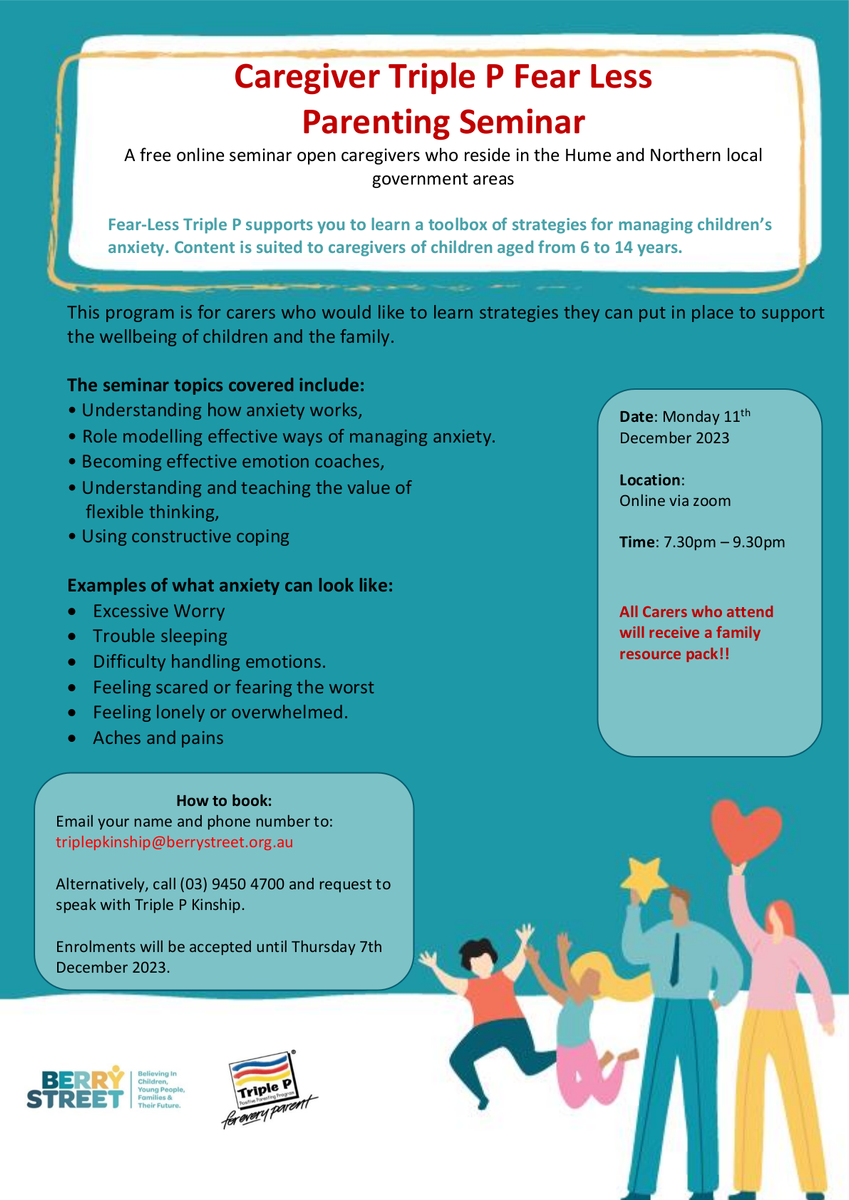Wellbeing
Kate Bonazza - Primary Wellbeing officer
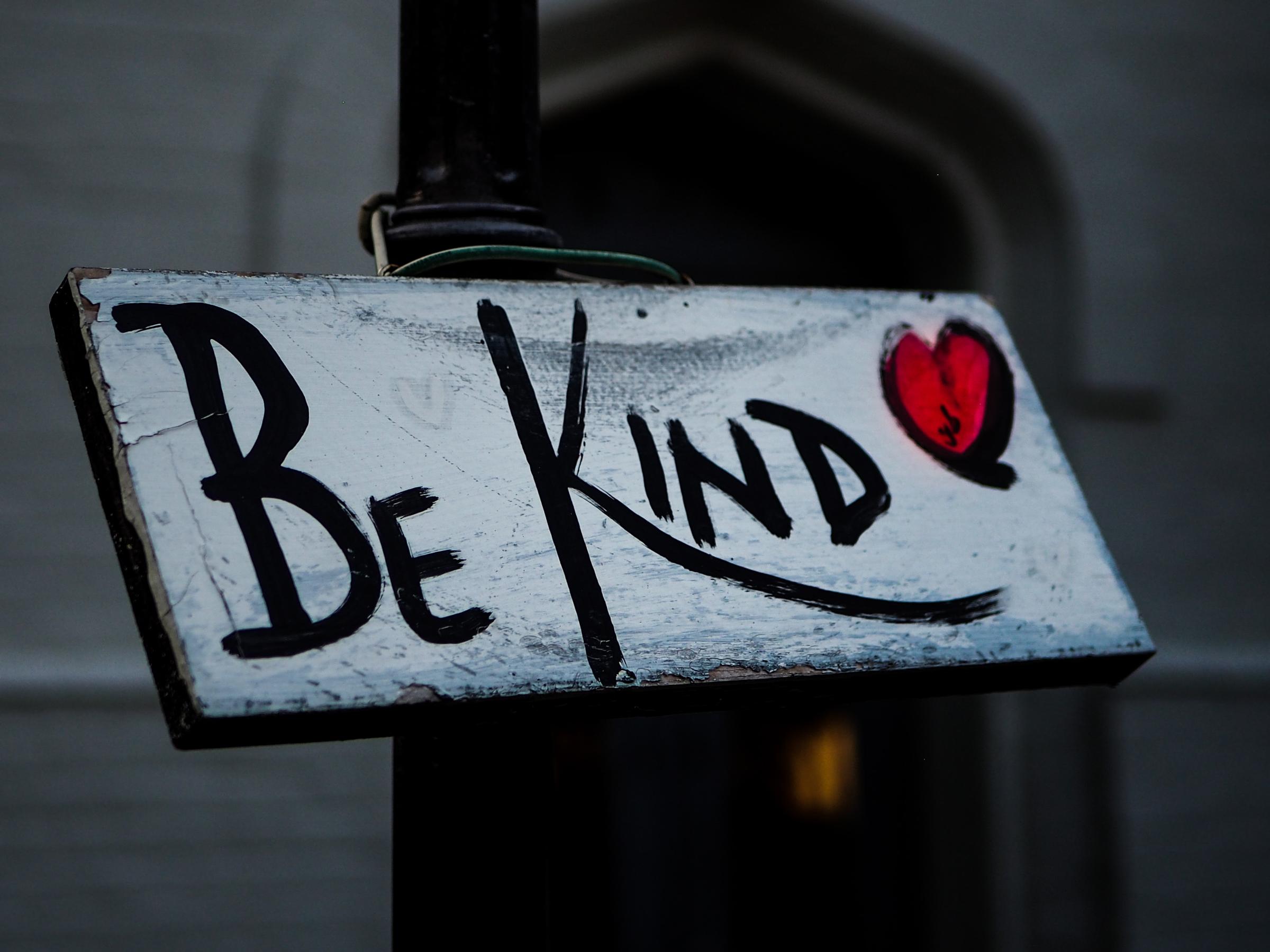
Wellbeing
Kate Bonazza - Primary Wellbeing officer




WELLBEING
2024 School Wellbeing Program
Our whole school wellbeing program, The Resilience Project, teaches and supports positive mental health in the classroom, staffroom and wider community. In 2024, we will continue to work in partnership with The Resilience Project. The Resilience Project program is emotionally engaging, practical, proven to have impact through evidence-based evaluations, and is delivered in over 800 schools. We look forward to implementing the program throughout our whole school again in 2024! Please see the attached snapshot flyer around the four principles of Gratitude, Empathy, Mindfulness and Emotional Literacy.
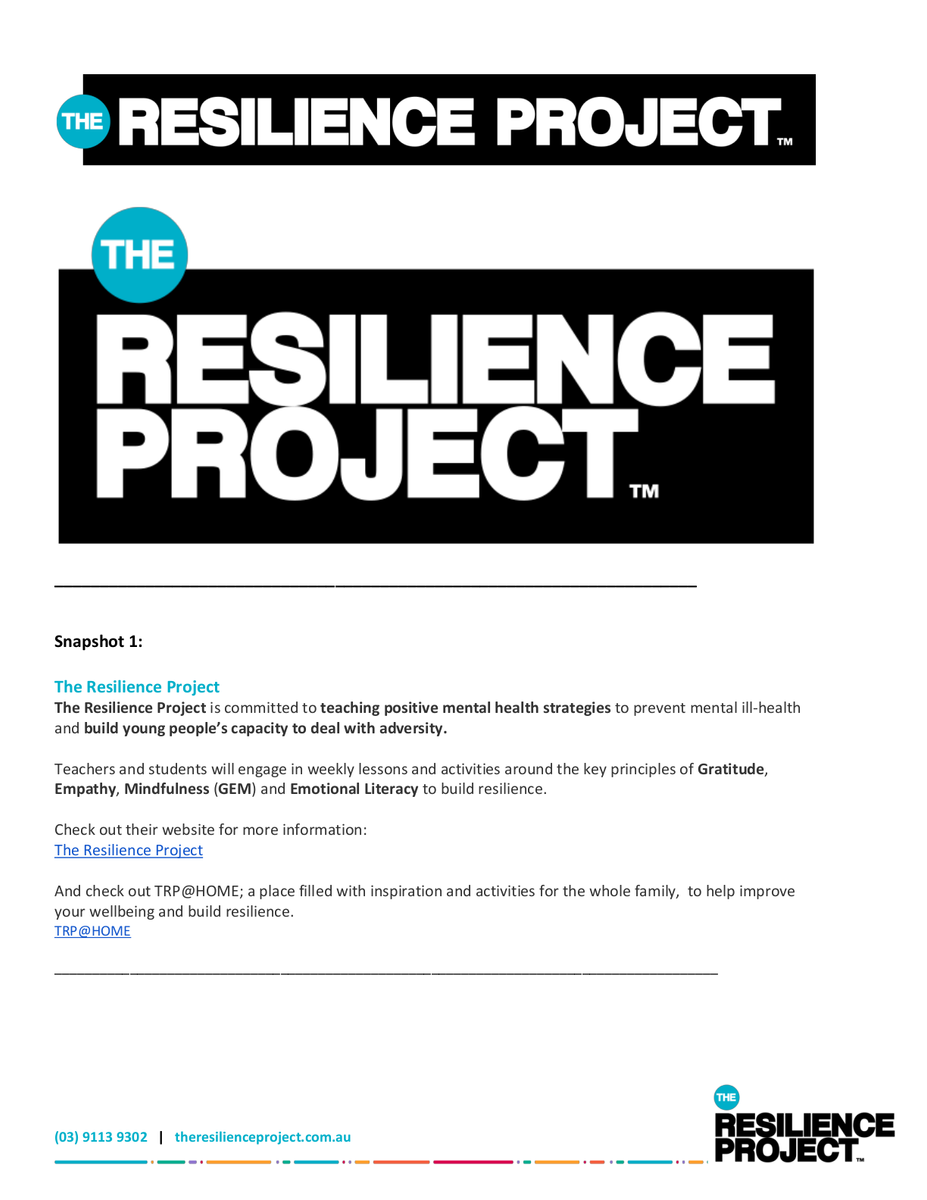
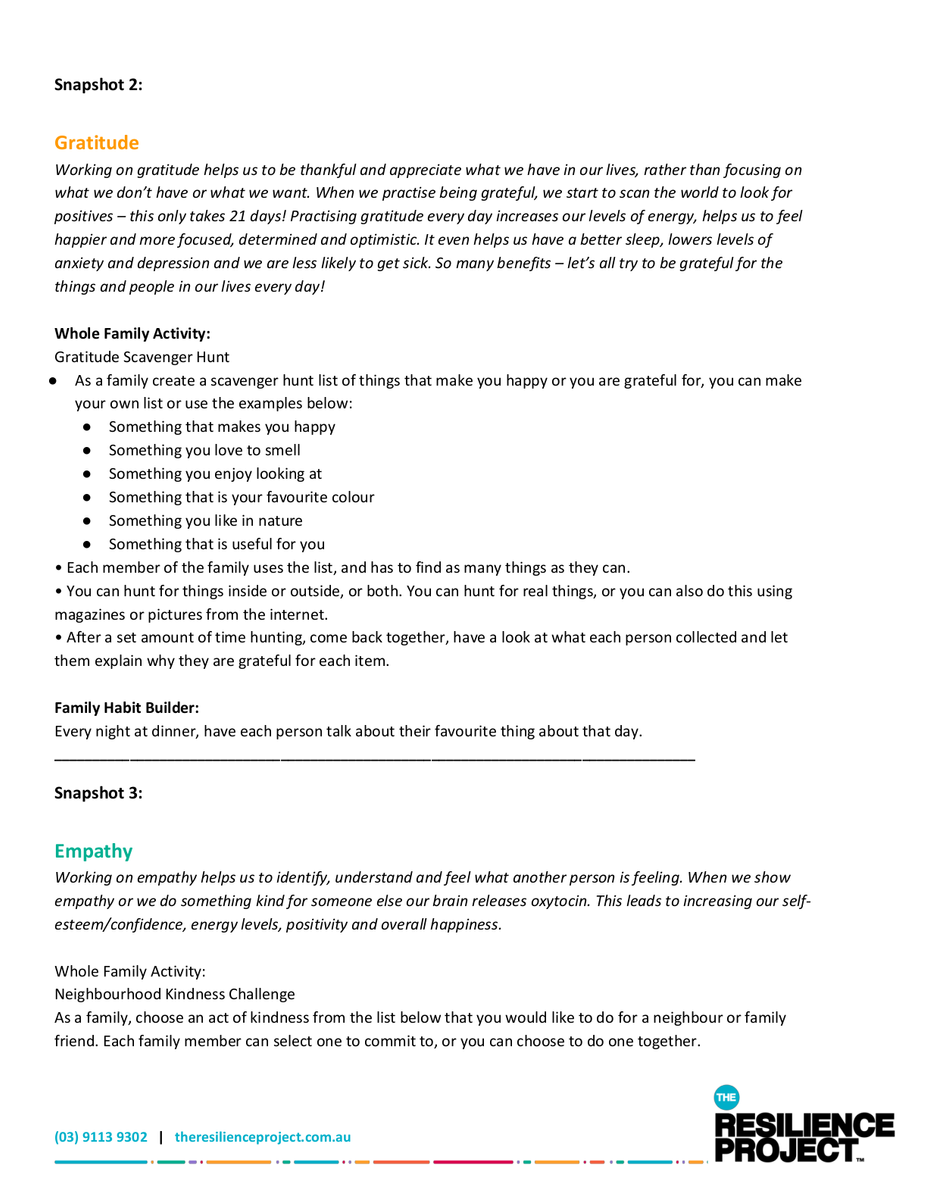
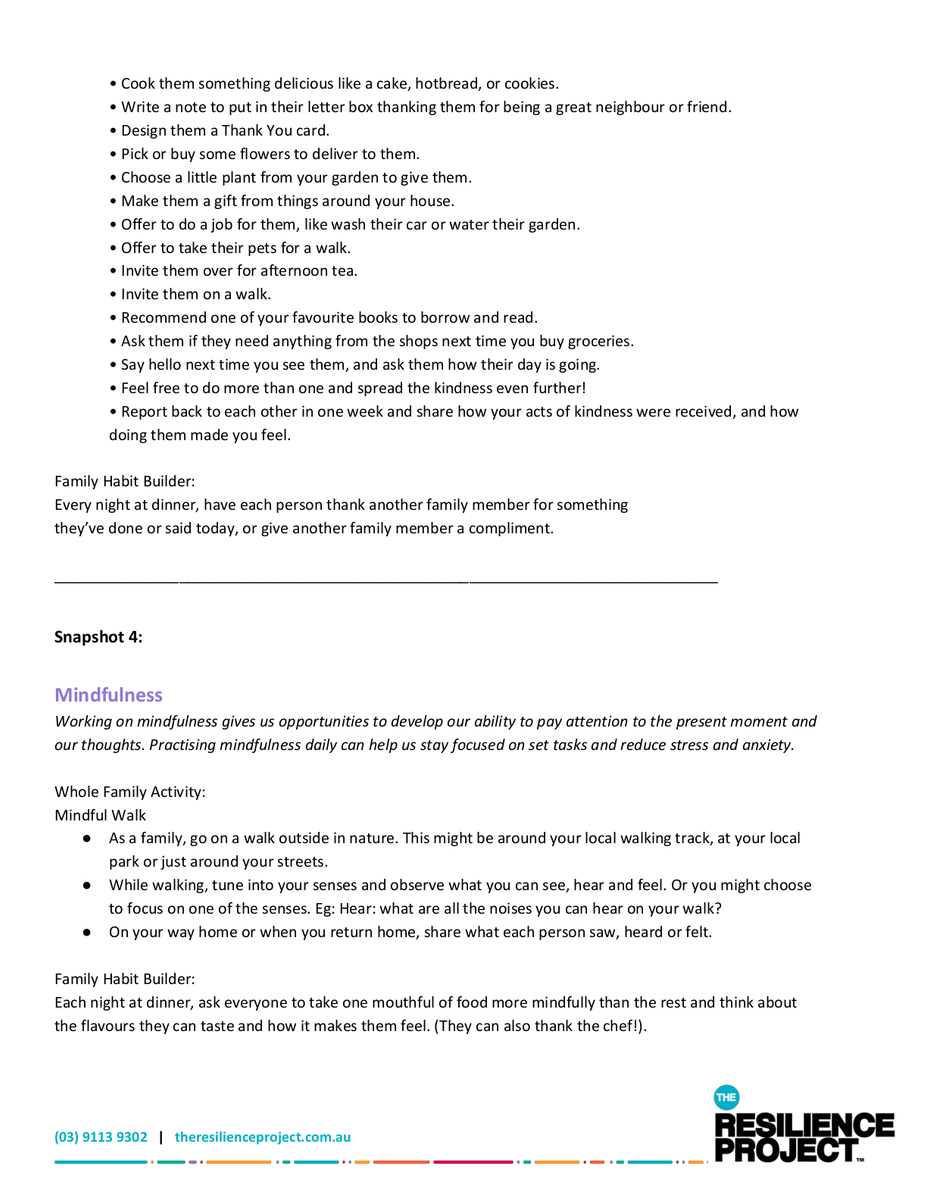
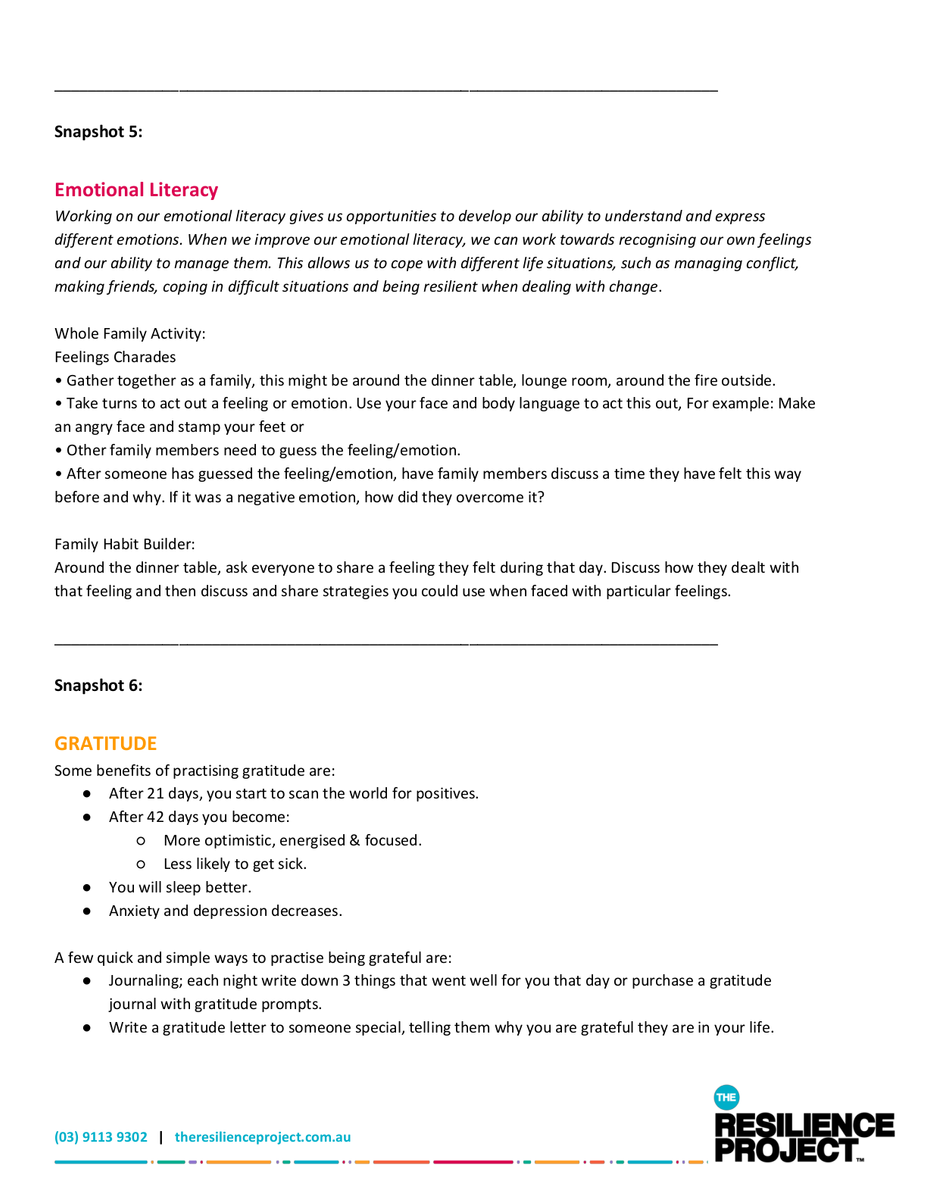
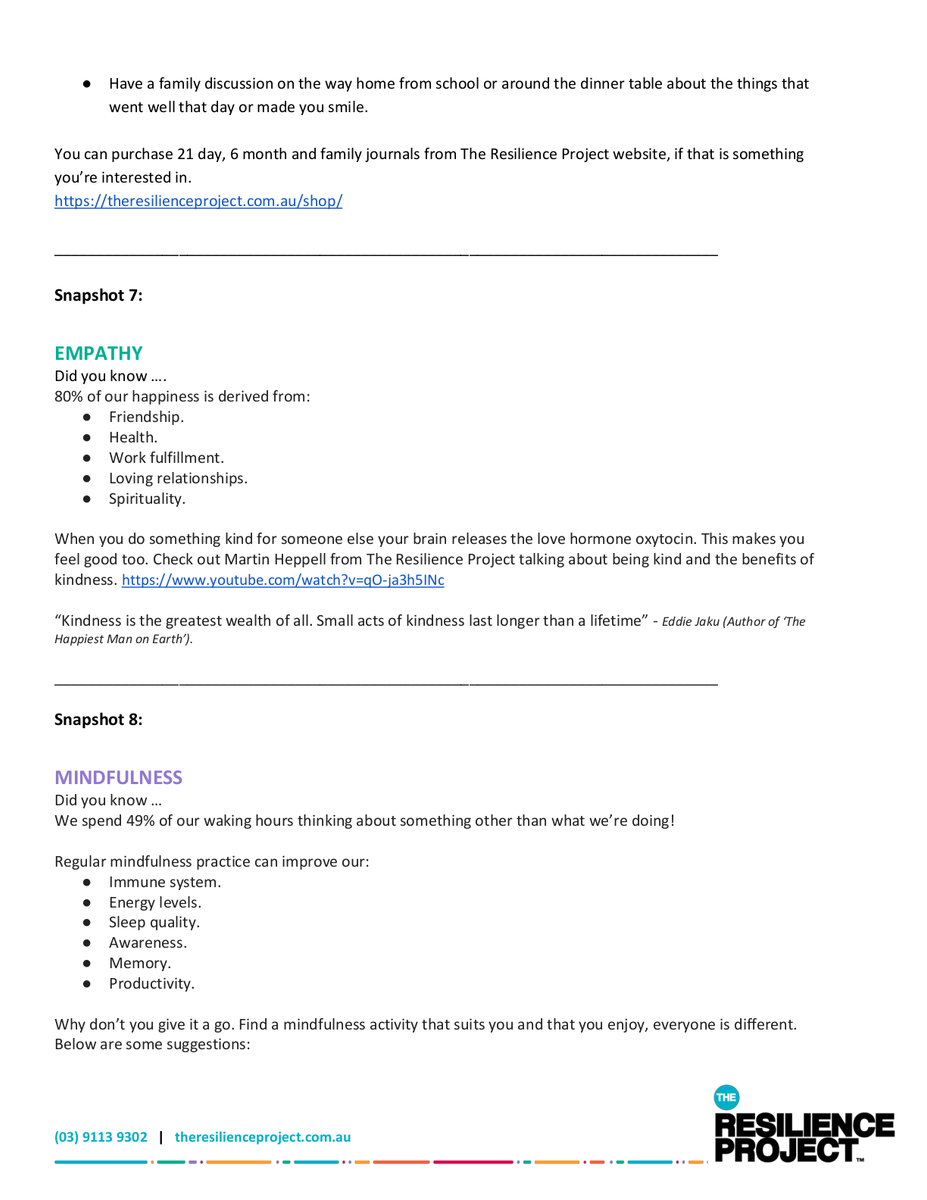
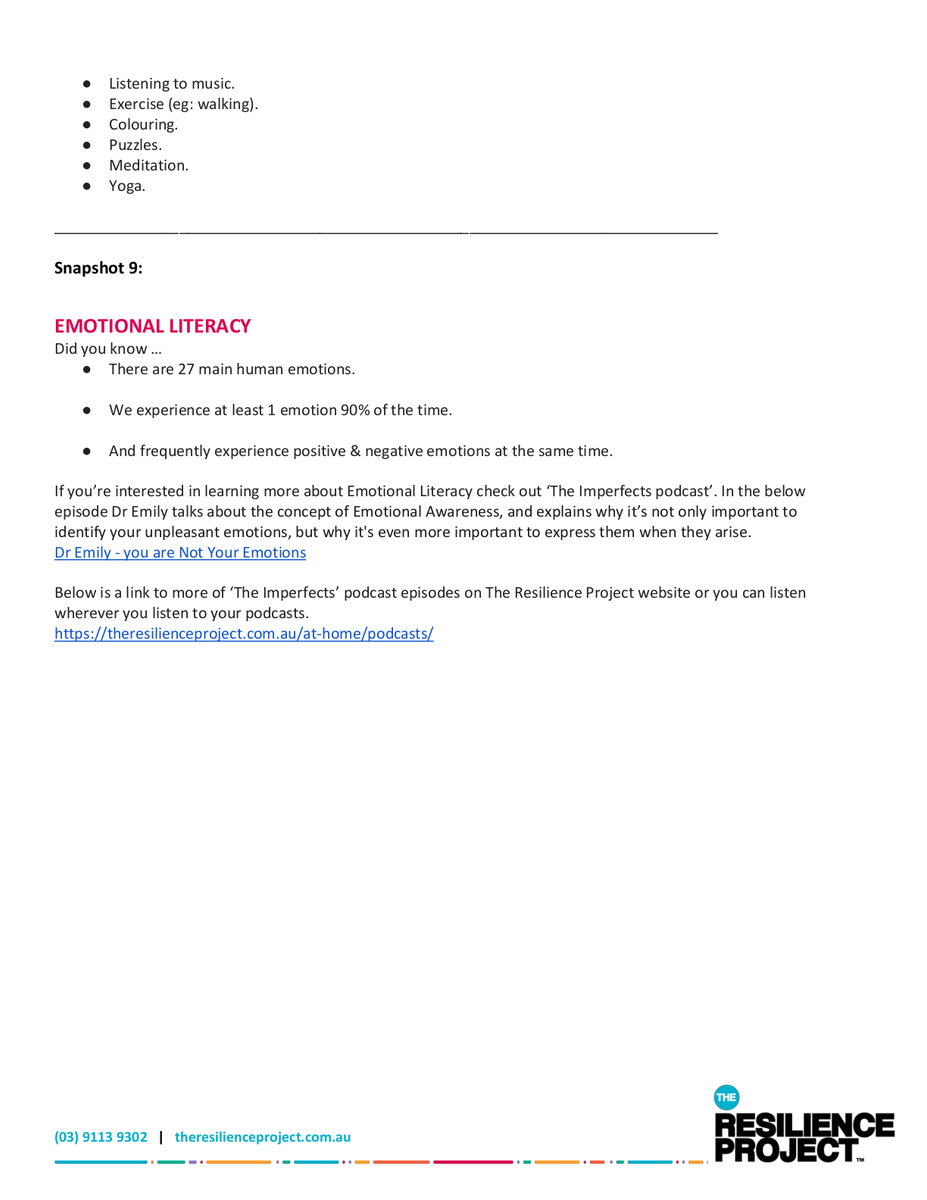






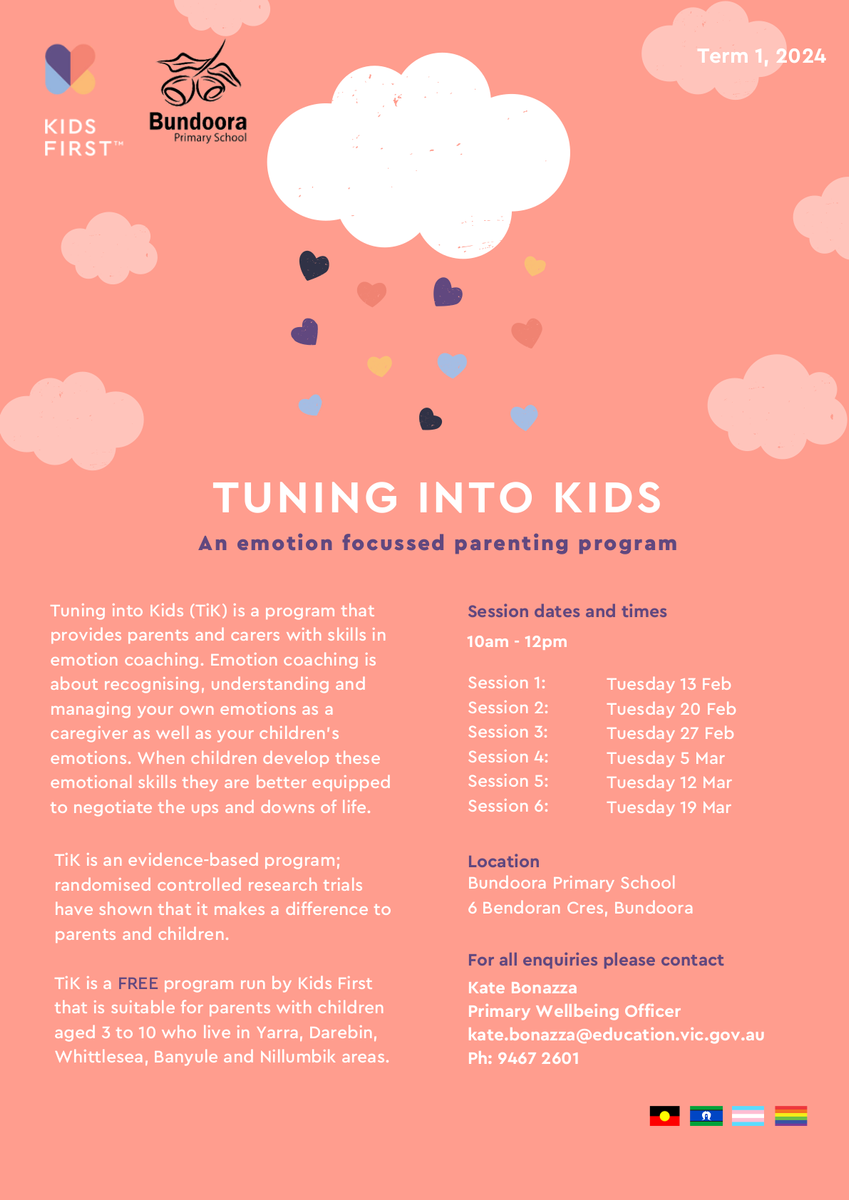

What we have been discussing in Wellbeing!
In sessions this term, students have been focusing on positive coping and problem solving.
We have been unpacking what both positive coping is and how we can use problem solving as a positive coping strategy.
| Positive Coping | |
When children and young people develop a language around coping, they are more likely to be able to understand and deliberately utilise a range of productive coping strategies and diminish their use of unproductive coping strategies. Students have been learning to extend their repertoire of coping strategies and benefit from critically reflecting on their own choices and being exposed to alternative options. Activities in wellbeing sessions have introduced students to the concept of self-talk and practice using positive self-talk to approach and manage challenging situations. Positive self-talk is a key strategy for coping with negative thoughts, emotions and events. It is associated with greater persistence in the face of challenge, and can be learnt or strengthened through practice. | What do we do when life gets challenging? Some behaviours help us deal with challenges successfully. Other behaviours are not helpful. Talking about different ways of coping helps us to understand good strategies and unhelpful strategies. When we learn about different ways of coping, we get better at choosing successful coping strategies. We learn:
how to practise positive self talk – a key strategy to cope with negative thoughts, emotions and events. |
| Problem Solving | |
| Problem-solving skills are an important part of the coping repertoire. In Wellbeing, students have been provided with a number of learning activities to help develop problem-solving skills. These activities assist students in developing their critical and creative thinking skills, as well as being helpful when presented with scenarios exploring personal, social and ethical dilemmas. | Problem solving is a positive coping strategy: being able to solve problems helps us to cope with challenges. We have been learning activities to practise thinking critically and creatively to solve problems. We have been exploring personal dilemmas as well as social and ethical issues in wellbeing sessions. |
